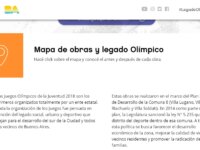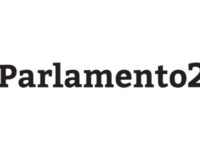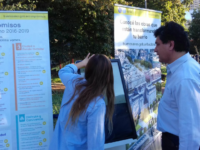The Youth Olympic Games Buenos Aires 2018 had as an objective to be organized in an open and transparent manner. As a result, the Olympic Legacy initiative was created to ensure relevant and timely access to information to all local stakeholders in regards to the event and its organization. This platform brought open government tools at the heart of the development of a global sports event. It had a significant impact in terms of promoting open data, higher quality data standards, improved…
Innovation Tag Opengov: open data
Launched in June 2018, Openstat Madagascar is an open data platform to highlight the "how" Government should release their data. Developed in a country where there is no Access to Information law, data available on the platform are all under Creative Commons and used as tools for Open Data advocacy program. Other national entities which want to make their data available to the public are welcome for partnership.
A new waste management system, driven by information. Bogota has evolved its cleaning and recycling scheme, generating a profound transformation in the way in which citizens needs are met and garbage collection is managed. This model is based on the effective use of data and information. This initiative has allowed greater transparency in the actions of involved public and private organizations, an intense collaboration to provide the best service and enabling citizens active participation.
The information on the different procedures of access to benefits is scattered among many different agencies websites, whereas the platform "Apoyos del Gobierno" aims to simplify through Artificial Intelligence that any interested party can consult the details of Federal Government programs in a single place.
Based on neurolinguistics analysis, the platform not only provides predicted results considering relevant contextual words, but also enhances searches considering the user’s profile.
The NODC is a data catalog fully compliant with DCAT-AP, the European standard for dataset metadata. It is open source, developed on GitHub, and consists of other open source projects. It can be reused on various levels of government and addresses an important issue with currently available data catalog implementations not in compliace with today’s metadata standards.
The Artech project invites artists, entrepreneurs, and developers to use public data as a "raw material" for works of art based on traditional arts or digital media. Being a well-known and respectable medium to broad audiences, we see art, as an original and fresh way to expose new audiences to the importance of open data and its relevance. This is the first time that a government agency in Israel has directly sponsored a creative and innovative experience of this kind.
In response to the generalized lack of political accountability and availability of public information, this online tool provides an open and qualified access to the Spanish Parliament’s activity, related to the implementation of the Agenda 2030.It promotes a transparent and participative implementation of this agenda and allows CSOs, policy makers and the media to monitor political proposals.The Spanish Government has included Parlamento2030 as one of the tools of its 2030 Agenda National…
Not only is transparency in Brazil taken as the principle of publicity in public administration, but also as a Public Policy, led by integrated actions focused on achieving specific goals.
Brazilian Government has reaped concrete quantitative and qualitative transparency-driven results: saving of resources, reformulation of public policies and inhibition of misconduct and corruption acts.
The Transparency Portal is the core of the policy and central tool to promote results through transparency.
BA Obras is a collaborative initiative to open information on public works in the City of Buenos Aires, seeking to increase transparency in the management of public resources. It consists on a portal through which all the residents of the City can track the works in real time; so they can see what works are being done in their neighborhoods, know the dates of start and end of them, and the investment they require, while they can monitor progress.
The Open Data Policy of the Federal Executive Branch was established by the Decree N. 8.777/2016. Besides establishing the possibility of requesting public databases, the policy sets up the obligation for each body to draw up an Open Data Plan (PDA), which systematizes the planning for the opening of public data. The CGU monitors (through www.paineis.cgu.gov.br/dadosabertos) around 230 federal agencies covered by the decree, establishing regular and customized contact with public managers.






